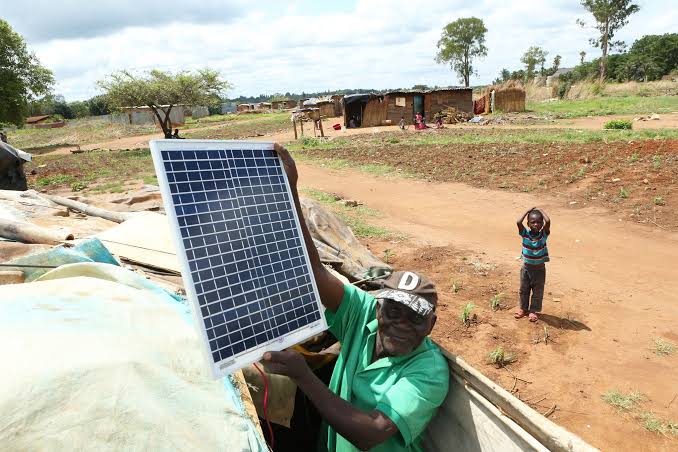In a landmark move toward sustainable development, the Trust Fund Committee of the Climate Investment Funds (CIF) has given its stamp of approval to Kenya’s ambitious $70 million plan aimed at achieving 100 percent clean energy.
This endorsement signifies a significant step forward in Kenya’s commitment to combatting climate change while fostering economic growth.
Kenya, a country known for its natural beauty and rich biodiversity, has long been at the forefront of renewable energy initiatives in Africa.
The country has diverse topography and abundant renewable resources. They include geothermal, solar, wind, and hydroelectric power. This sources position Kenya as a low-carbon economy.
The $70 million plan, supported by the CIF, focuses on expanding Kenya’s renewable energy capacity and improving energy access for its citizens. The funds will enable the country’s transition to 100 percent clean energy by 2030.
Also Read: COP28: Africa to Benefit from New $420 Million Climate Fund
CIF Approval for Renewable Energy
This approval, as part of CIF’s Renewable Energy Integration (REI) investment program, will support Kenya’s ambition to reduce greenhouse gas emissions by 32 percent by 2030 and achieve Net Zero by 2050.
Kenya’s CIF REI plan will support access to clean, adequate, affordable, and reliable electricity in the country. The country will mobilize at least an additional $243 million from the public and private sectors through implementing partners. This partners include the African Development Bank and the World Bank Group.
Currently, the share of renewable energy in Kenya is almost 90 percent – including 45 percent geothermal and 26 percent hydropower. But the system faces challenges.
During evening hours, it struggles to meet peak demand. However, later, at night, generation surpluses from geothermal and wind are often dispatched.
Kenya’s REI investment plan will improve dispatch, grid stability, and flexibility to address these issues. It will facilitate future private sector investment in innovative storage technologies, such as battery storage and pumped hydropower.
The energy system will also be better prepared for a significant increase in electric mobility and cooking. The plan contributes to the expansion of variable renewable energy. This include wind and solar, from 19 percent to 30 percent by 2030.
Ten countries are already enrolled in this program. Currently, the program has Brazil, Colombia, Costa Rica, Fiji and Mali’s investment plans.
Also Read: Acumen Joins Climate Fund in $250 Million Support for Africa Clean Energy
REI Program’s in Kenya
CIF has established the pioneering REI program.The program precisely addresses the issues linked to the deployment of clean energy . At the same time, intermittent power sources in developing economies.
REI can support a mix of supply/demand side flexibility measures. It enables technologies, infrastructure, market design and system operations improvement. On the other hand, it enables electrification and demand management. Likewise, it advances social inclusion and leveraging private sector financing.
CIF underscores the global recognition of the country’s efforts to transition to a sustainable, low-carbon economy. It also highlights the importance of international cooperation and financial support in achieving the goals of the Paris Agreement. Likewise,it also addresses the urgent challenges posed by climate change.

